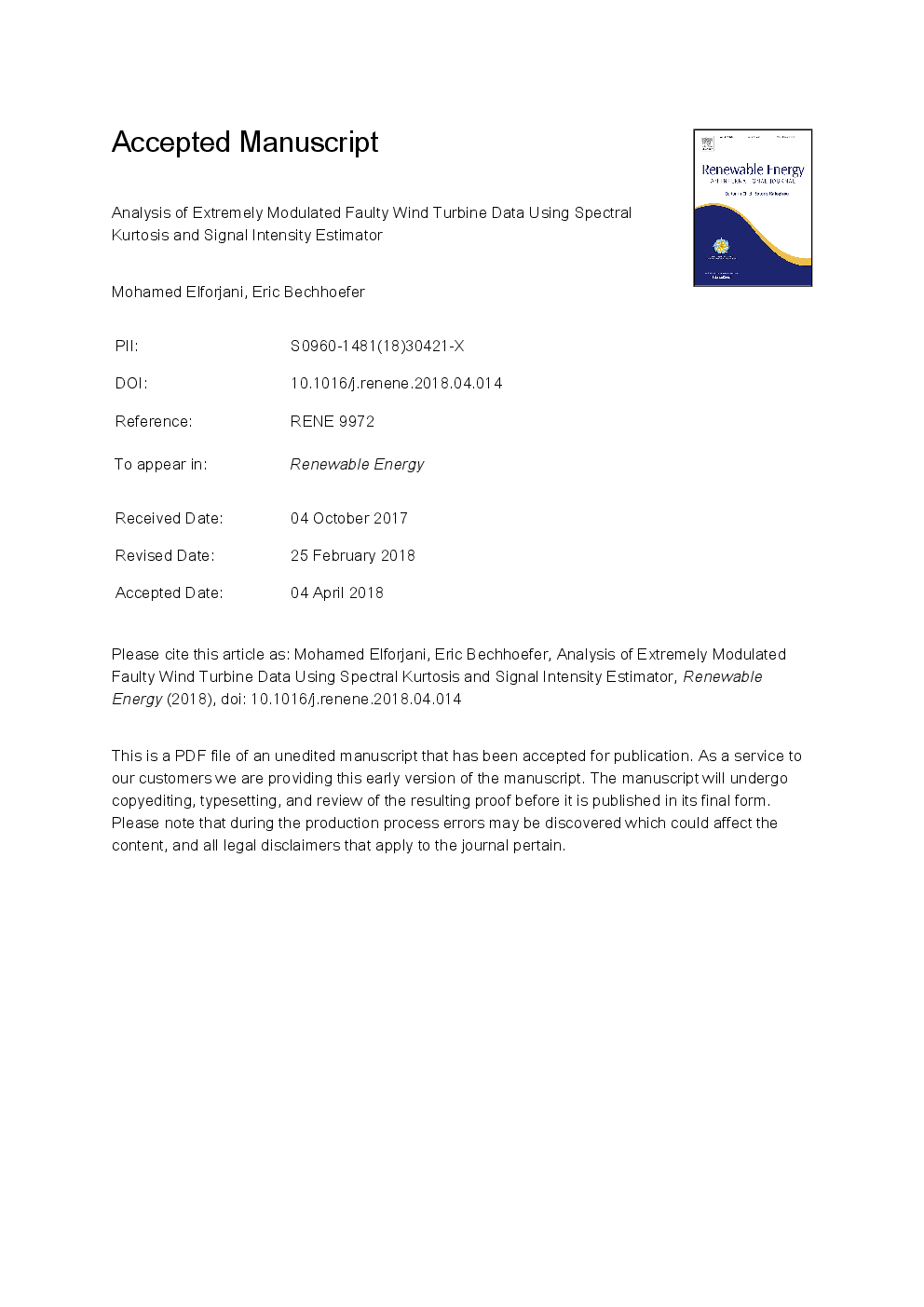ترجمه فارسی عنوان مقاله
تجزیه و تحلیل داده ها با استفاده از داده های توربین های با ولتاژ نامطلوب با استفاده از طیف سنجی طیف سنج و برآورد شدت سیگنال
عنوان انگلیسی
Analysis of extremely modulated faulty wind turbine data using spectral kurtosis and signal intensity estimator
| کد مقاله | سال انتشار | تعداد صفحات مقاله انگلیسی |
|---|---|---|
| 141526 | 2018 | 38 صفحه PDF |
منبع

Publisher : Elsevier - Science Direct (الزویر - ساینس دایرکت)
Journal : Renewable Energy, Volume 127, November 2018, Pages 258-268
ترجمه کلمات کلیدی
توربین های بادی، نظارت بر وضعیت، مجموعه داده های ارتعاش داده های مدولاسیون شده، بلبرینگ، برآورد شدت سیگنال، سوراخ طوفان،
کلمات کلیدی انگلیسی
Wind turbines; Condition monitoring; Vibration dataset; Modulated data; Bearings; Signal intensity estimator; Spectral kurtosis;

